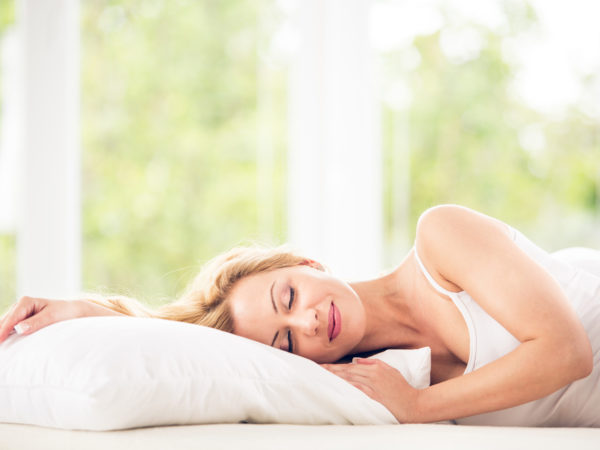Do You Need A Pillow For Sound Sleep?
Do you think it would be beneficial to sleep without a pillow? Did our ancestors experience better rest without pillows? Can you discuss the pros and cons of using a pillow?
Andrew Weil, M.D. | September 19, 2013

Defined in the broadest sense – as an object that raises and supports the head during sleep – human beings have been using pillows for centuries. The earliest pillows on the historical record appear to be blocks of stone used in ancient Mesopotamia, 9,000 years ago. The early Egyptians are also said to have rested their heads on stone in order to prevent bugs from crawling into their ears, mouths and noses. The ancient Chinese used ceramic, stone or wood pillows, and I’ve read that Japanese geishas slept with their heads on stone pillows to keep their hair neat. Greeks and Romans used pillows made of cloth and stuffed with feathers, reeds, or straw, which sound much more comfortable than stone, wood or ceramics. In the middle ages, King Henry VIII is said to have banned the use of pillows by anyone except pregnant women (and perhaps himself); in those days most men are said to have viewed pillow use as a sign of weakness.
While most of the early pillows sound quite uncomfortable, they do suggest that historically, humans have sought to elevate their heads for sleeping comfort. Today, pillows are considered so important that some hotels offer a choice of different types, and according to a National Sleep Foundation poll, 64 percent of respondents used one to two pillows, while 27 percent used at least three.
I discussed your question with Rubin Naiman, Ph.D., a sleep specialist at the Arizona Center for Integrative Medicine. He views the use of pillows as largely a personal comfort issue, and says that he knows people who say they sleep best without a pillow and others who stack a number of them up to manage gastroesophageal reflux disorder. He recommends choosing pillows that don’t trap heat, “since body temperature needs to drop for us to sleep well, and we want pillows made of materials that do not outgas questionable chemicals.”
You can now find pillows designed for your individual sleeping style:
- Thinner pillows if you sleep on your back; the object here is to prevent your head from being thrown too far forward by a thick one.
- Firm, thick pillows if you sleep on your side; the pillow should fill the distance between your ear and shoulder.
- A thin, flat pillow if you sleep on your stomach; although you may not need a pillow to support your head, you might want to put one under your stomach to prevent lower back pain.
You can also find cervical pillows to support your neck, “cool” pillows to help combat hot flashes, and even anti-snore pillows, all with questionable benefits.
Bottom line: whether or not you sleep with a pillow (or two or more) is strictly a matter of personal preference. I know of no sleep or health benefits associated with omitting them from the bedroom.
Andrew Weil, M.D.









